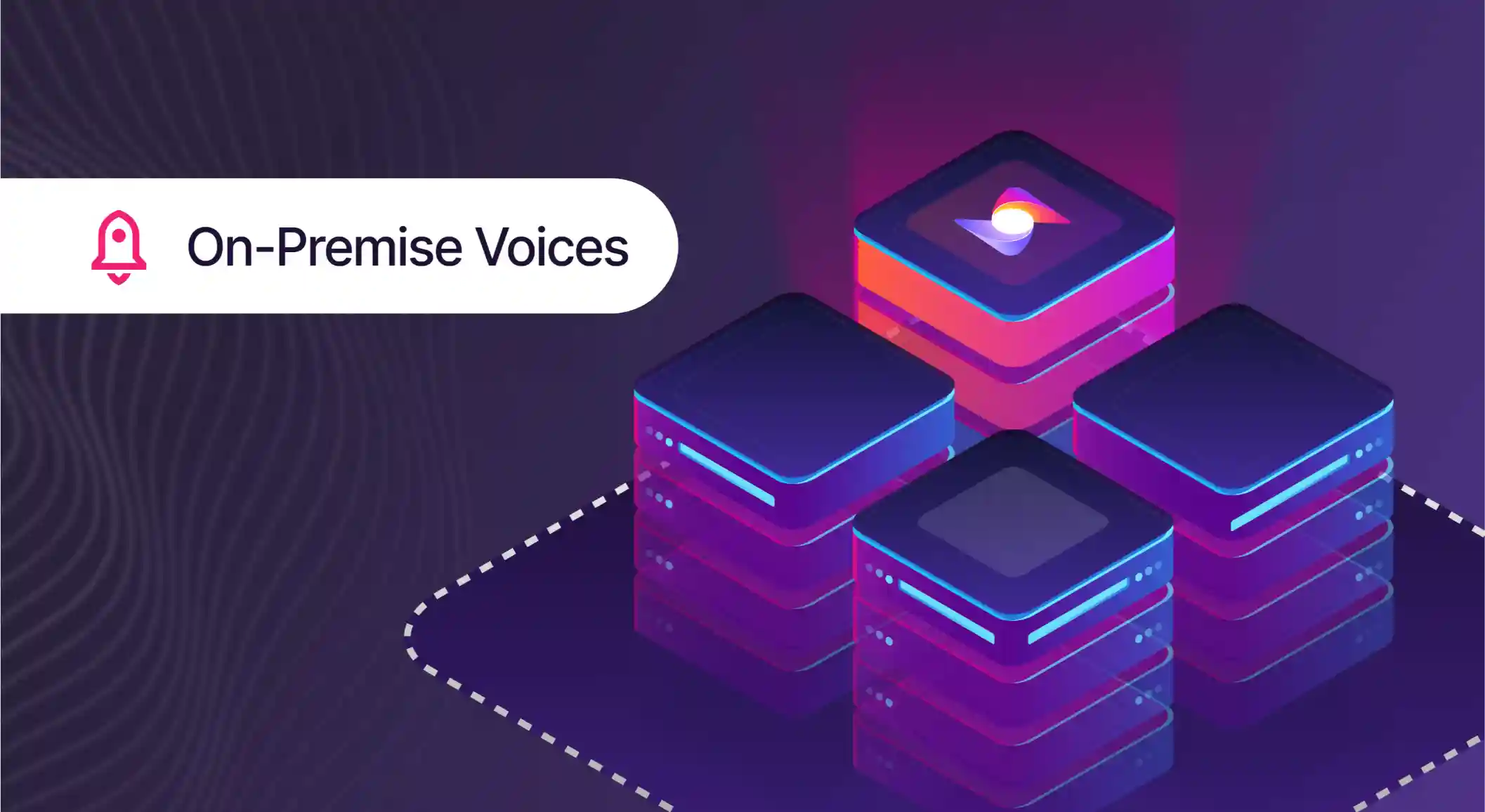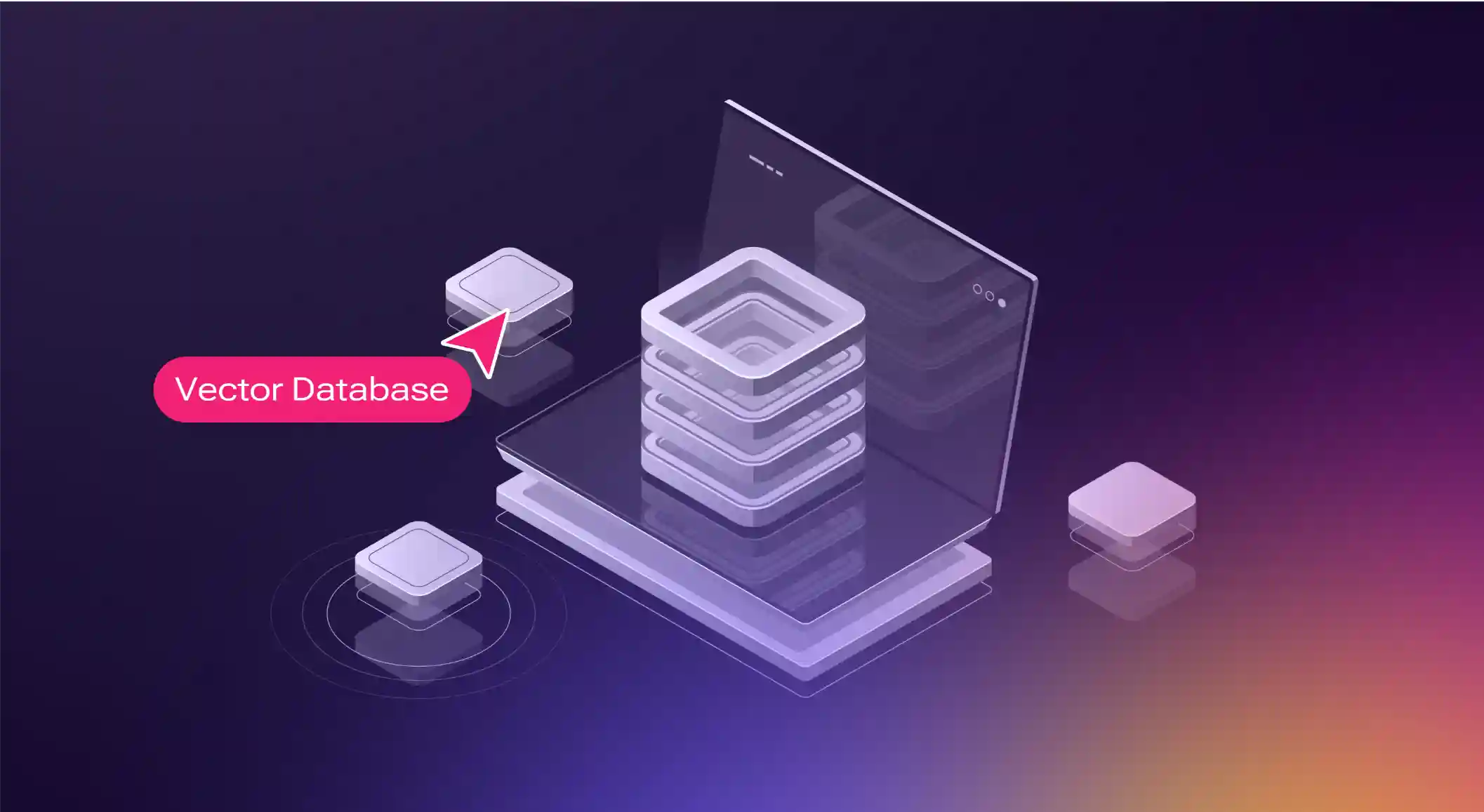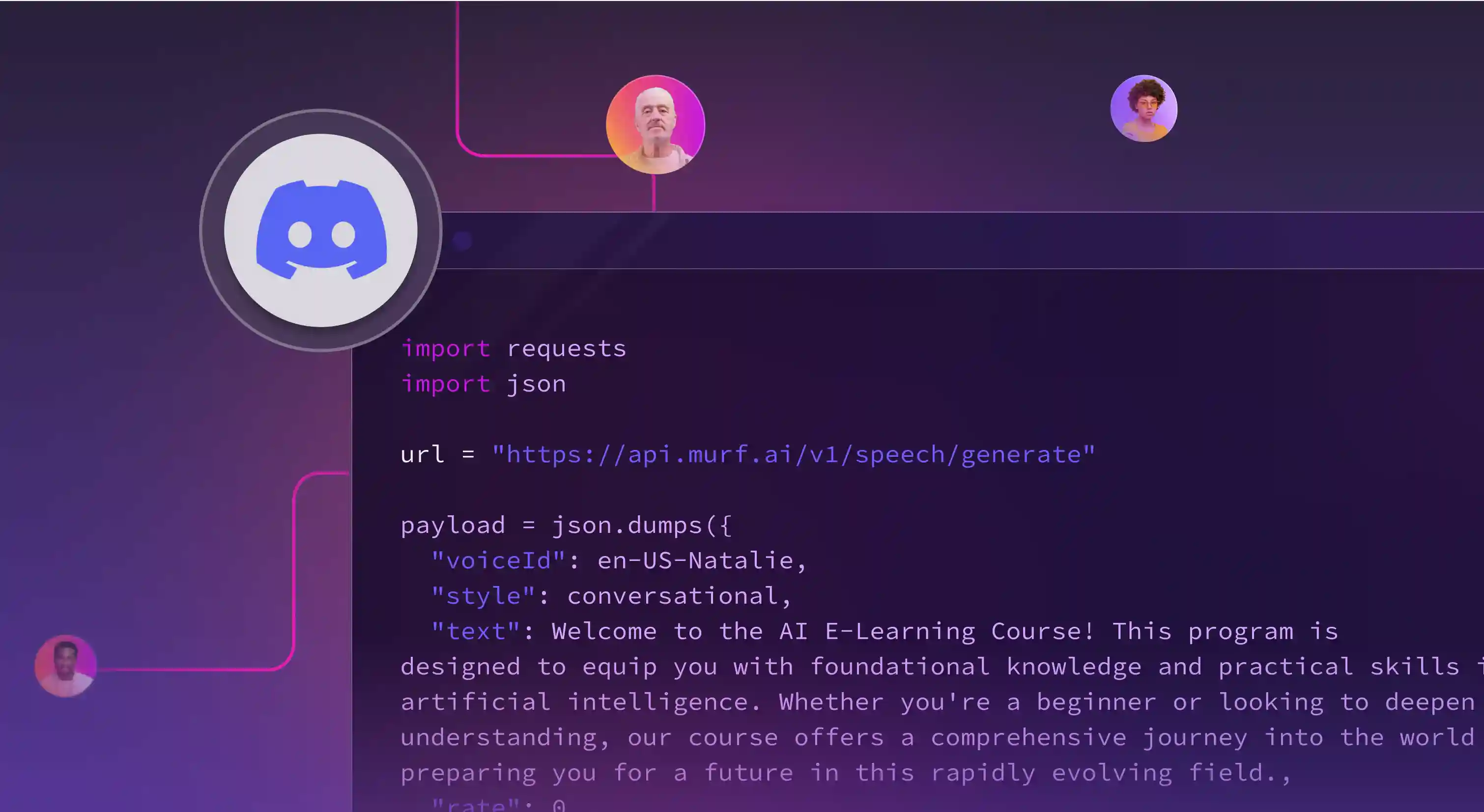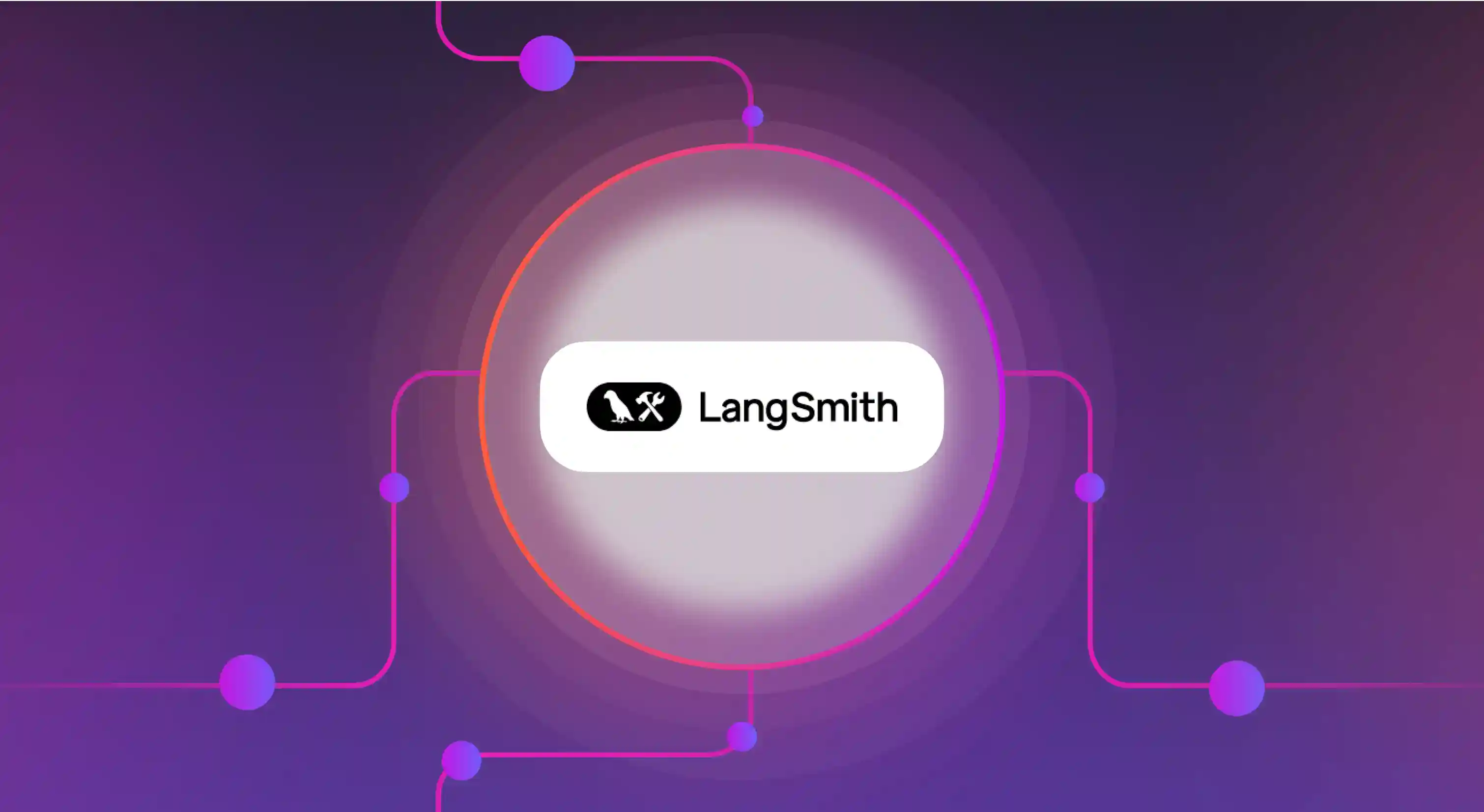Introducing Data Residency for Murf Falcon
.webp)
At Murf, we’ve always believed that voice AI should be as responsible as it is powerful. With Murf Falcon, our newest and fastest text-to-speech model, we’re not only delivering natural, lifelike voices but also giving users control over where their data is processed through regional data residency.
What is Data Residency?
In simple terms, data residency means your voice data, the text you send, the audio we generate, and the intermediate processing stays within a specific region.This ensures that your content is handled in compliance with local data-protection laws and optimized for performance.
Murf Falcon currently runs in 11 major regions, each with high-performance data centers:
US (East & West), Canada, UK, Germany, Japan, India, UAE, South Korea, and Australia, and Brazil.
.webp)
This regional footprint means your voice agent processes data close to your customers, for instance a voice agent running in Mumbai or California ensures low latency and compliance with local data-handling requirements.
As global usage grows, we plan to add more regional deployments to keep performance consistent and latency minimal for every user, everywhere.
Why Does Data Residency Matter?
For Voice AI, data residency is important for legal compliance, privacy and performance optimization.
1. Legal & Compliance Requirements
Across the world, regulations like GDPR (EU), CCPA (California), and DPDP (India) are enforcing stricter rules on how and where user data can be transferred. Many industries, especially healthcare, finance, and government, require that data stay within specific borders.
By choosing a regional endpoint with Murf Falcon, you can meet these compliance needs with fewer legal complexities, reduced reliance on data transfer frameworks, and stronger audit readiness.
2. Performance Benefits
Latency can make or break real-time voice experiences. When data travels across continents, response times slow down. Murf Falcon’s regional deployments process data as close to your users as possible, reducing round trip time and improving Time-To-First-Audio - often under 130ms.
This delivers smoother, faster, and more natural voice generation, making it essential for live interactions, voicebots, and dynamic content platforms.
Who Benefits from Murf Falcon’s Data Residency?

Murf Falcon’s data residency is built to serve industries where data control, compliance, and latency are non-negotiable when building and deploying voice agents.
Information Technology/ Retail
Keeping data local also makes voice agents faster and more natural to talk to, since the system doesn’t have to send audio halfway around the world. It improves reliability, cuts response times, and helps contain any security risks. For industries like IT/e-commerce, retail, where voice agents often deal with personal or confidential details, data residency is essential for building trust and meeting regulatory standards.
Healthcare
To protect sensitive data information, Falcon’s regional data residency complies with health privacy laws within country-specific boundaries. It also enables telemedicine and patient engagement voice agent implementation and adheres to HIPAA (Health Insurance Portability and Accountability Act) mandates.
Financial Services & Banking
Financial institutions that use voice agents for customer service, onboarding and voice alert creation can benefit from using Murf Falcon’s data residency to align with local financial data regulations, reducing compliant risks in highly regulated environments. Processing within Falcon’s EU (Germany) or UK regions simplifies compliance with regard to GDPR ruling for international data transfers.
Government Deployments & Public Sector
Government bodies and public sector organizations require voice services that operate within national infrastructure. For example, UK public institutions encourage the use of in-country data centers for cloud service. Murf’s Falcon supports this mandate in the use of voice AI tools.
Murf Falcon: Data Residency Architecture
Murf Falcon’s residency system is built on isolated regional environments, which balances regulatory compliance, latency optimization and operational transparency. With Murf’s isolated Falcon TTS environments, we ensure that:
- All text and audio data generated through Murf Falcon are processed entirely within the region you select. This means that once you choose a regional endpoint for e.g. India, the EU, or the UK, your content never leaves that jurisdiction during synthesis or playback.
- Customer account information, billing records, and usage metadata are securely stored in the United States ensuring global consistency in account management.
- Our network routing ensures that any request to regional URLs is confined within that jurisdiction, minimizing latency and ensuring compliance with local data-handling laws.
- To safeguard all transfers, encryption in transit is enforced globally using TLS.
Compliance & Security
We’ve built data residency on the same strong foundation that powers the rest of our platform:
- We align with GDPR and CCPA
- SOC 2 Type II and ISO 27001 certifications
- End-to-end encryption (TLS 1.2+ in transit, AES-256 at rest)
- Region-specific isolation for enterprise deployments.
With these safeguards, Falcon empowers teams in highly regulated industries to innovate confidently, without losing sight of compliance or governance.
Performance That Scales Globally
Our team benchmarked Falcon across multiple regions and found exceptional consistency in performance and latency. Even with several data centers worldwide, Falcon maintained the same first byte times (TTFB) no matter where requests originated.
Across tests, Falcon’s Time-To-First-Audio consistently stayed below 130 ms, and in roughly 80% of all locations Falcon outperformed every other TTS model tested. Where we came second, we were within 10 ms of the fastest model.
Getting Access
Free and Pay-as-you-Go users can access the Falcon US-East regional endpoint with a default concurrency limit of 15 requests. Free & Pay-as-you-go users can also try out Falcon's global and other regional endpoints (such as India, UK, Germany, etc.) with a default concurrency of 2 requests.
Need a higher regional-concurrency limit? Please contact our sales team to know more.
If you’re an existing customer, reach out to your Murf account representative or email support@murf.ai to enable it. For new users, our sales team can help design a deployment strategy that aligns with your compliance and performance needs.
The Future of Global Voice AI with Murf Falcon
With Murf Falcon’s data residency, we’re redefining what it means to build trustworthy, high-performance voice AI. Whether you’re serving creators in Europe, developers in India, or enterprises in the U.S., Falcon delivers the same low-latency, compliant, and transparent experience, everywhere your voice needs to go.
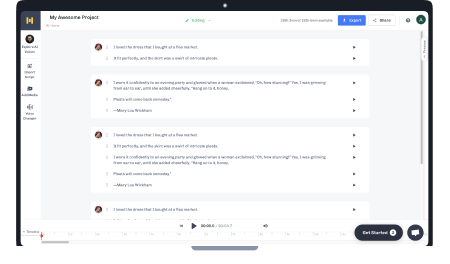
Frequently Asked Questions
What’s the difference between data residency and data sovereignty?
.svg)
Data residency is where data is stored and processed. Data sovereignty means the data is also governed by that region’s laws.
Does Murf Falcon process data outside my selected region?
.svg)
No. All voice data (text + audio) stays in the region you select. Only account-level data is stored in the U.S.
Is data residency required for GDPR or other privacy laws?
.svg)
Not always, but it helps avoid cross-border legal complexity and supports compliance in regulated markets.
Which industries care most about data residency?
.svg)
Healthcare, finance, government, media, and telecom - all benefit from local processing and strict data control.
How can I enable data residency in Murf Falcon?
.svg)
Enterprise customers can request regional access via their Murf account manager or contact support@murf.ai.
Can I pick which region my voice data is processed in?
.svg)
Yes. With Murf Falcon, you can choose a regional endpoint (like India, UK, or Germany) to make sure your data stays within that region.
Is data residency available for all users?
.svg)
Data residency is fully supported for Enterprise users. Free and Pay-as-you-Go users can access regional endpoints, but with limited concurrency support.
Will using a regional endpoint slow things down?
.svg)
No. It actually makes things faster. Processing happens closer to your users, which reduces latency and improves voice response time.
Does data residency change voice quality or features?
.svg)
Not at all. Voice quality, features, and model performance are the same across all regions.
What if I need higher concurrency in other regions?
.svg)
Enterprise customers can request custom concurrency limits based on scale and region. Just reach out to our sales team to get started.



